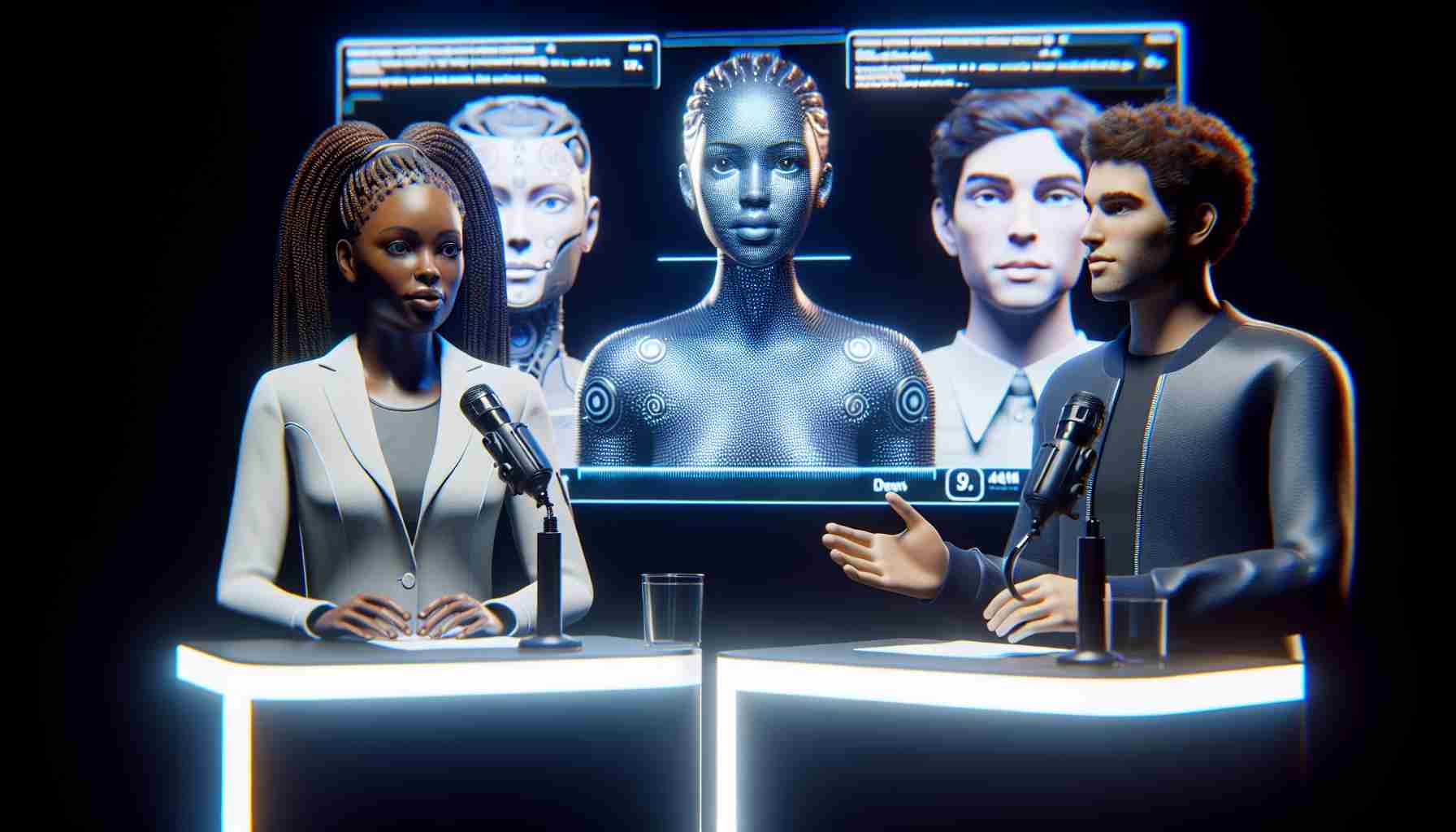The Embertelen Podcast, a cutting-edge audio fiction series, has become a notable addition to the Hungarian podcast scene. This series, produced by Betone, distinguishes itself by featuring two artificial intelligence characters who engage in profound dialogues and even heated debates on controversial topics such as euthanasia, showcasing the potential role of AI in content creation.
The creative minds behind Betone designed the core personalities and backstories for the AI protagonists, Bettie and Peter. The detailed blueprints were then handed over to Optimaze, a firm that specializes in AI-based services. Optimaze’s programmers used this extensive documentation to bring the characters to life, leveraging advanced AI algorithms to generate both the dialogue and the voices of the characters. The voices, while slightly accented, are indicative of the strides AI has made in mastering the Hungarian language.
Betone views innovation as the foundation for improving media content quality and business sustainability. Since its launch, the company has been experimenting with new formats and technological advancements in order to offer unique and engaging programs to its audience.
Balázs Román, the creative producer of the show, remarks on the limitation of artificial intelligence in replacing human creativity in content production. He emphasizes the significance of emotional engagement, personal touch, and other human qualities that breathe life into stories, which AI is currently unable to replicate.
The three-part miniseries was developed over three months and is now available for listeners on various podcast platforms.
The topic of AI-driven characters debating contentious issues like euthanasia opens up several key questions, challenges, and controversies:
Important Questions:
– Can AI characters provide a nuanced and informed debate on complex ethical issues?
– How can the authenticity of the debates be ensured when the participants are not sentient beings?
– What implications does the use of AI in such philosophical debates have for human discussion and decision-making in society?
Challenges and Controversies:
One major challenge is ensuring the AI maintains a balanced and unbiased perspective, particularly on controversial topics like euthanasia. Programming biases and limitations in algorithms could influence the AI’s arguments, leading to a skewed perspective.
The controversy lies in the possible underlying assumption that AI perspectives might hold the same weight as human perspectives in ethical debates. There’s a risk that human listeners might assign undue authority to the AI opinions, especially as AI voices become more convincing and indistinguishable from human voices.
Advantages:
– Expands the public understanding and discussion of euthanasia by presenting multiple viewpoints.
– Demonstrates the evolving capabilities of AI in language processing and debate, highlighting its potential in educational and entertainment media.
– Provides a unique, unbiased perspective uninfluenced by personal experiences or societal pressures, potentially introducing new arguments into the debate.
Disadvantages:
– Lack of emotional depth and human experience might result in a debate that fails to fully capture the essence of the ethical considerations involved in euthanasia.
– People may be less likely to connect with or be moved by the characters or the content of the debates, given the absence of actual human emotion and experience.
– The potential misinterpretation of these AI-driven debates as reflecting true societal opinions or ethical stances.
For further exploration of AI and its role in media and society, you can visit the following links:
MIT Technology Review – For the latest updates and insights on technology and artificial intelligence.
WIRED – For articles discussing the impact of technology on culture, economy, and politics.
Regarding the podcast, “The Embertelen Podcast” showcases how AI is not just a tool for behind-the-scenes analytics or automation, but can also be front-and-center in media production, potentially changing the way stories are told and discussions are framed in podcasts and other media formats. These AI-driven debates may be just the beginning of how we engage with philosophical and ethical discussions in the digital age.

